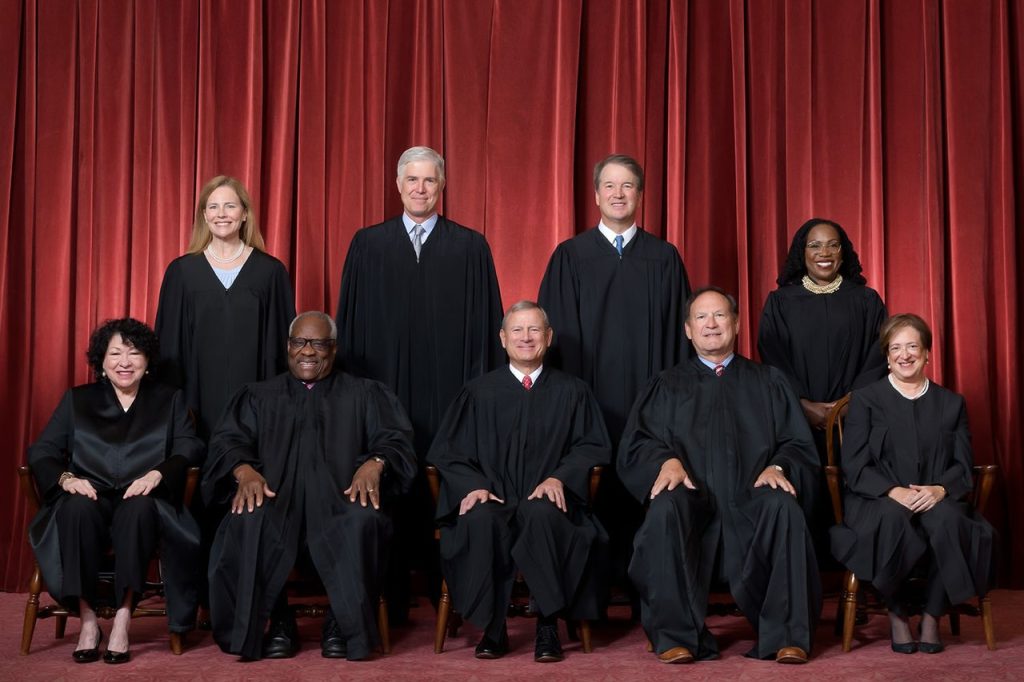The Supreme Court is gearing up to release a wave of significant decisions on some of the most contentious issues today, including abortion, gun rights, homelessness, unions, social media, pollution, and the administrative state. Despite the Court’s typical June deadline, there’s a backlog of cases, suggesting a chaotic end to the term that may extend into early July. This pattern of last-minute rulings can be overwhelming for the public and underscores the Court’s failure to manage its docket effectively.

The current situation is both disgraceful and unnecessary, as the sheer volume of complex legalese will be challenging for the average citizen to digest. The conservative supermajority on the Court seems determined to push through its agenda, leading to a flood of critical decisions all at once. This approach undermines the public’s ability to understand and react to the Court’s rulings, many of which could have significant, direct impacts on their lives.

A closer look at the cases awaiting decisions reveals the magnitude of what’s coming. The justices are set to deliver around 14 high-profile opinions, significantly more than in a typical term. This year’s docket includes cases that could surpass the landmark 2014 decision in Burwell v. Hobby Lobby in terms of impact and controversy, reflecting a shift in the Court’s priorities towards more politically charged issues.

The Supreme Court’s approach to selecting cases has changed dramatically. Instead of focusing on smaller, clarifying cases, the Court is now prioritizing high-stakes disputes, leaving many important but less sensational legal questions unresolved. This shift results in fewer cases overall, but a greater number of lengthy and complex opinions that take longer to finalize.

Some of these cases, particularly those from the U.S. Court of Appeals for the 5th Circuit, were almost unavoidable due to their controversial rulings. These include decisions on medication abortion and the right of domestic abusers to bear arms. However, many other cases on the docket seem less urgent, chosen instead to advance a conservative agenda. Examples include cases on criminalizing homelessness and union-busting tactics.

Two cases, Loper Bright Enterprises v. Raimondo and Relentless v. Department of Commerce, highlight this trend. Both challenge the longstanding principle of Chevron deference, which allows federal agencies some leeway in interpreting ambiguous laws. Overturning Chevron would significantly hinder the government’s regulatory power, aligning with conservative priorities to limit federal authority.

The Court’s involvement in January 6-related prosecutions also exemplifies its controversial docket management. By questioning the federal obstruction law used in these cases, the Court risks undermining the prosecution of Capitol riot defendants and potentially affecting charges against Donald Trump. The conservative justices’ willingness to entertain Trump’s dubious claims of presidential immunity further complicates the legal landscape.

The influence of conservative judicial appointments is evident in the Court’s current trajectory. Justices now come to the bench with firm ideologies and agendas, resulting in a Court that operates more like a legislative body than an impartial judiciary. This dynamic was starkly visible in the rapid reversal of Roe v. Wade and continues to shape the Court’s docket and decisions.

As the public braces for the imminent cascade of rulings, it’s clear that the conservative majority has strategically packed this term with high-impact cases.

This approach ensures that their priorities are addressed promptly, regardless of the potential chaos it creates.

The long-term consequences of this strategy will likely resonate far beyond the immediate term, fundamentally altering the legal and social landscape.





